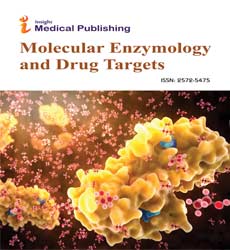Abstract
Molecular and Biochemical Aspects of Denitrification
Denitrification is a microbially mediated process that reduces nitrate to create molecular nitrogen via a series of intermediate gaseous nitrogen oxide products. Denitrification is a type of respiration performed by facultative anaerobic bacteria that decreases oxidised forms of nitrogen in response to the oxidation of an electron donor such as organic materials. In order of most to least thermodynamically advantageous, the preferred nitrogen electron acceptors are nitrate, nitrite nitric oxide nitrous oxide and ultimatelyy di-nitrogen, which completes the nitrogen cycle. Microbes that de-nitrogenate require a low oxygen content of less than 10% as well as organic C for energy. Denitrification can be strategically utilised to treat sewage or animal leftovers with high nitrogen concentration since it can remove NO3 and reduce its leaching to groundwater.
Author(s):
John Edgar
Abstract | PDF
Share this

Abstracted/Indexed in
- Google Scholar
- China National Knowledge Infrastructure (CNKI)
- Publons
- Secret Search Engine Labs
Open Access Journals
- Aquaculture & Veterinary Science
- Chemistry & Chemical Sciences
- Clinical Sciences
- Engineering
- General Science
- Genetics & Molecular Biology
- Health Care & Nursing
- Immunology & Microbiology
- Materials Science
- Mathematics & Physics
- Medical Sciences
- Neurology & Psychiatry
- Oncology & Cancer Science
- Pharmaceutical Sciences
